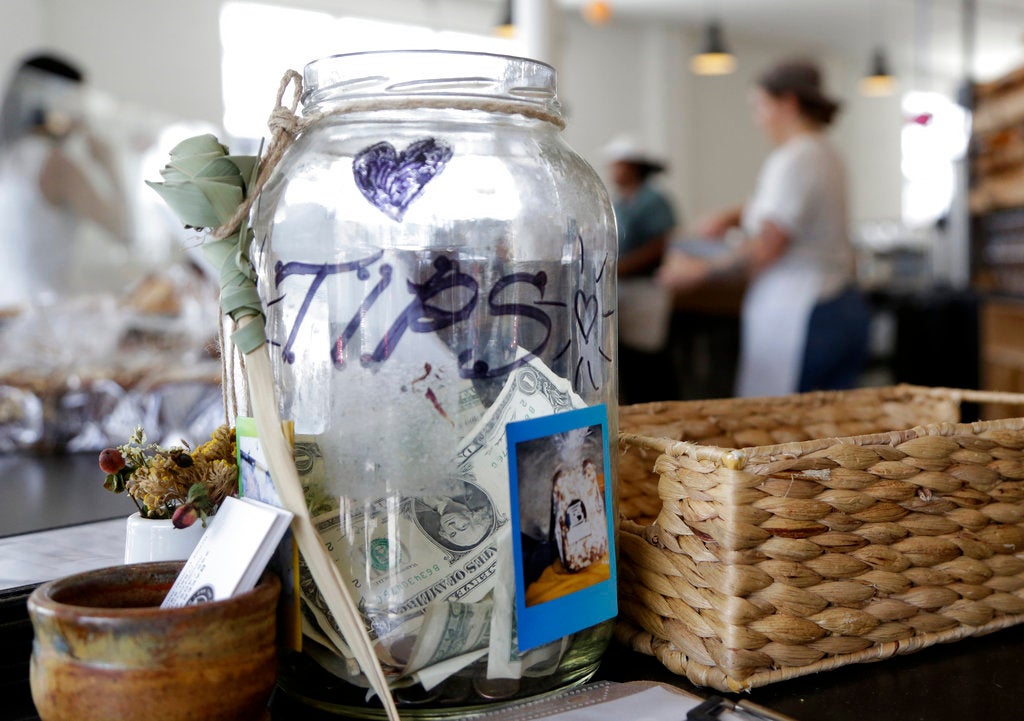Republican state lawmakers have sent their first bill to the desk of Democratic Gov. Tony Evers, voting along party lines to pass an income tax cut that the governor has all but promised to veto.
The proposal passed the state Senate on a 19-14 vote Wednesday, with Republicans in favor and Democrats opposed. It passed the state Assembly Tuesday by a margin of 61-33.
GOP legislators argued they were helping fulfill an Evers campaign promise to cut taxes, while Democrats accused Republicans of spending recklessly by passing a tax cut without a long-term plan to pay for it.
News with a little more humanity
WPR’s “Wisconsin Today” newsletter keeps you connected to the state you love without feeling overwhelmed. No paywall. No agenda. No corporate filter.
The tax cut has been among the most contentious issues during the first month of divided government in Wisconsin. Both parties say they’re united in principle, but they remain sharply divided over key details.
Evers wants to pay for his tax cut by scaling back a state tax credit for manufacturers, a stance he reiterated Wednesday in a written statement shortly after the Senate passed its proposal.
“I made a promise to the people of our state that I would cut taxes by 10 percent for the middle-class, and that I’d do it in part by rolling back handouts to millionaires and giving that money back to Wisconsin families,” Evers said. “That’s the plan the people of our state voted for last November and that’s the plan they deserve.”
Evers said he would not take immediate action on the Republican plan. He has pledged to introduce a tax cut in his budget later this month.
But Senate Majority Leader Scott Fitzgerald, R-Juneau, said he was concerned a tax cut wouldn’t be prioritized in the context of a larger budget debate. He said passing the tax cut now would make sure it would happen.
“We’ve got to continue to nip away at Wisconsin’s high taxes,” Fitzgerald said.
The tax cut that passed the Senate Wednesday would cut income taxes by about $500 million over the next two years and would be offset initially by a cash balance in the state budget.
It would work by expanding Wisconsin’s standard deduction for individuals who earn up to $127,000 or families who earn up to $155,000.
While Evers hasn’t promised to veto the plan, he has said he can’t see himself supporting it, arguing it would be unsustainable in future budgets and endanger funding for other priorities like schools.
A Democratic tax cut that Evers endorsed last week would reduce income taxes by about $890 million over the next two years, paid for in part by increasing taxes on manufacturers by nearly $520 million.
Evers’ tax cut would offer individuals who earn below $80,000 and families that earn below $125,000 a 10-percent tax credit. It would also expand Wisconsin’s Earned Income Tax Credit.
Whether that’s the version of the tax cut that he proposes in his budget remains to be seen. Senate Democrats didn’t offer it as an amendment Wednesday night, saying the discussion about tax cuts was premature.
“We have divided government now,” said Sen. Chris Larson, D-Milwaukee. “Political stunts are going to be called out for what they are. This is a political stunt.”
Should Evers reject the GOP tax cut, Republicans could try to override the governor’s veto. But even with large majorities in both chambers of the Legislature, they’re still short of the two-thirds margin needed to override a governor.
Wisconsin Public Radio, © Copyright 2026, Board of Regents of the University of Wisconsin System and Wisconsin Educational Communications Board.






